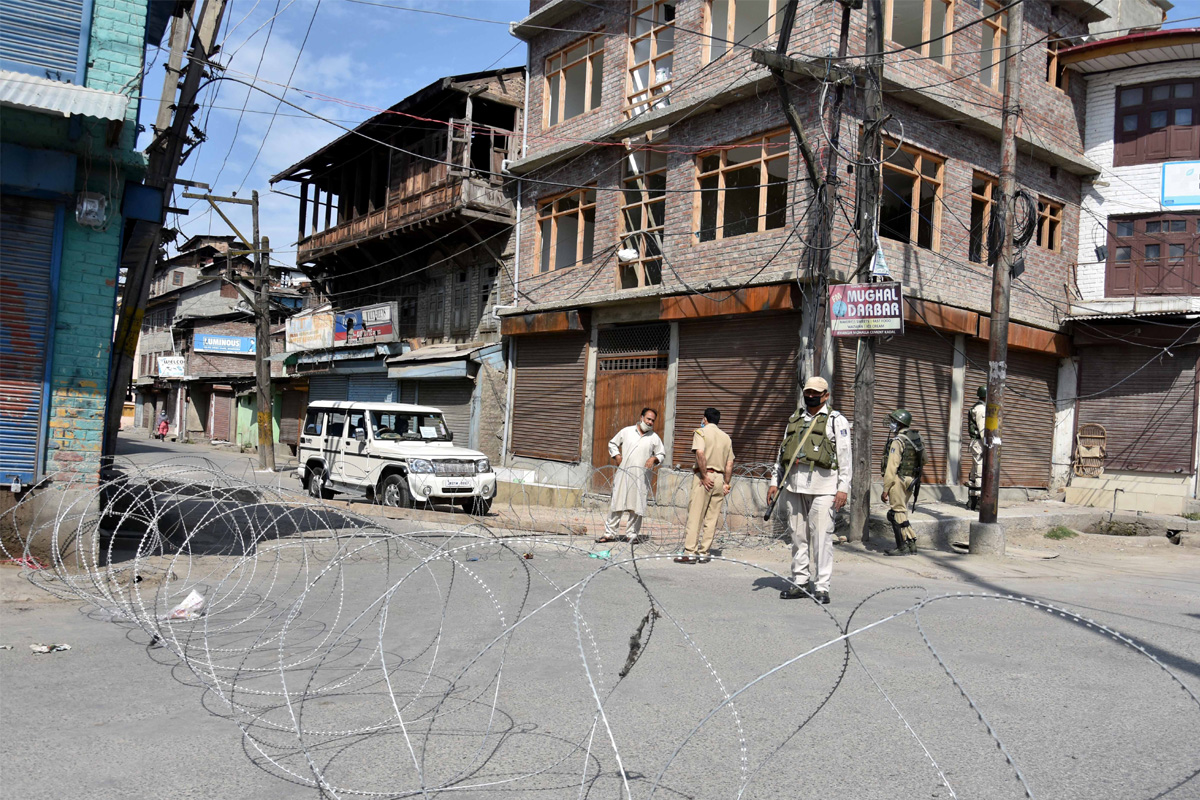Ayear has passed since the bifurcation of Jammu and Kashmir. Those of us who live outside the state now know what life is after five months of lockdown. Unfortunately, that has been the life of Kashmiris for years faced with militancy and political instability. There are allegations about the heavyhandedness of the security forces stationed in the state. On the ground, nothing much has changed since last August.
The people are facing a double whammy as they suffer from militancy on the one hand and the consequences of the complete lockdown in the past five months on the other. Jobs are scarce and development work has been hit. Manoj Sinha’s appointment as the new Lieutenant-Governor has been welcomed in political circles, as Kashmir needs a politician and not a bureaucrat now.
Advertisement
Does it mean things will become normal now? It is difficult to say. There are many outside influences at work such as Pakistan, China and the militants. Some Kashmir experts believe that dialogue with Pakistan should be resumed, as it will be dangerous if China and Pakistan work in tandem. The challenges before Sinha are many.
Politically there are three main challenges. The first is the delimitation process. This will not be completed before next October, The second is holding Assembly elections, as the state needs a popular elected government. Since 2018, it has been under Central rule. The third is reviving the promise of full statehood. Home Minister Amit Shah, while piloting the bifurcation bill had told Parliament that statehood could be revived in the future.
There are multiple petitions before the Supreme Court to decide on the constitutional validity of the giant move. There is also the question whether elections come first or delimitation. The BJP hopes it will get six or seven more seats in Jammu after the delimitation. For all these you need a seasoned politician who should be accessible to people and political leaders. An iron grip over the administration would go a long way in increasing the confidence of people in the government.
Sinha has the advantage of having the ear of the Prime Minister. It is good that Sinha has said that he will open direct dialogue with the people soon. He also said he will accelerate the development of the state. He said after taking oath, “We need to establish a dialogue with the common people of Jammu and Kashmir. We don’t have any agenda in that. There will be no discrimination against anyone. Constitution will be Gita in that.”
The second is dealing with the political class. There are two important things in Kashmir. The first is there is a political vacuum. This needs to be filled. The second is no one talks to the political players. The governor should talk to them. This is easier said than done. A year ago Kashmir’s entire political class was arrested, some of its most prominent politicians are still in detention. Those who have been released have, for now, been largely cowed into silence.
Only a few weeks ago National Conference leaders Dr Farooq Abdullah, his son Omar Abdullah and some other leaders were released. Former chief minister Mehbooba Mufti is still in detention. An attempt by Dr Farooq Abdullah to revive political activities by convening a meeting of opposition leaders was prevented last week.
Sinha knows that at some time or the other political activities must resume. For now, authorities should release politicians still in detention and allow political activity to resume. The third is restoring normalcy in the state as soon as possible. The Kashmir chamber of Commerce claims that the loss in the past one year has been about Rs 40,000 crore in the valley alone while about 500,000 jobs have been lost.
Tourism was the worst hit. The number of tourists who visited the state has come down from 6,11,544 in 2017 to just 40,039 in 2019. In January this year, Army Chief General Manoj Mukund Naravane said that the law and order situation had improved in Jammu and Kashmir after Article 370 was scrapped last year. According to officials, in the past one year the number of Kashmiri youth who have joined the militants has come down by almost 40 per cent. Also, the terrorist incidents have also come down.
Overall, 148 terrorists have been killed since January 2020 in the Valley as of July 30. Of these, 48 terrorists were killed in June alone. The Lt-Governor knows the difficulties ahead. “There should be peace and stability in Jammu and Kashmir. The situation of uncertainty should end, terrorism should end. Achieving all this along with accelerated development will be our aim, our mission,” he said of his priorities. However, it is expected that Prime Minister Modi might give some indication about the future path of Kashmir in his Independence Day speech.











